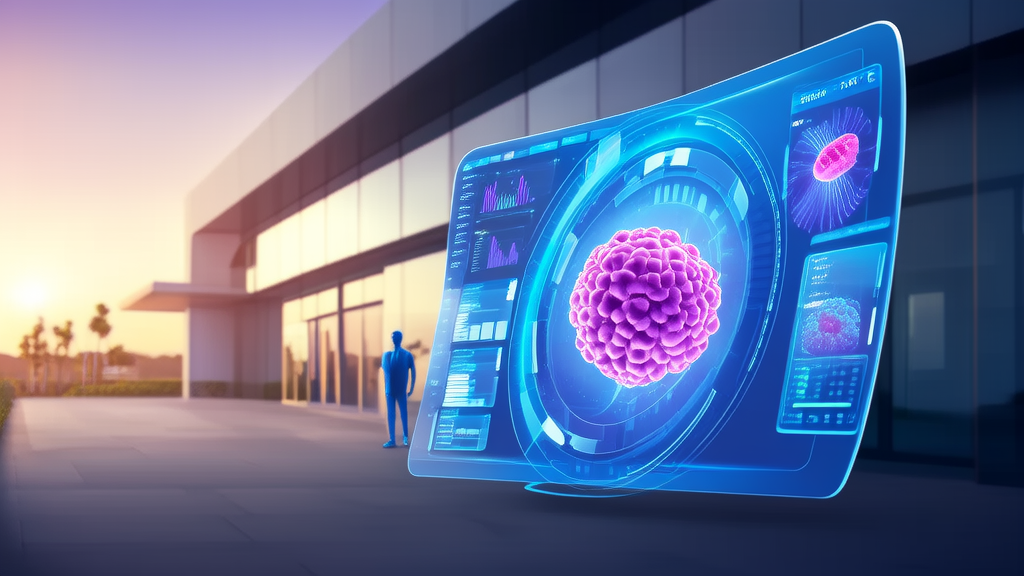🧠 Daily AI & Tech Trends
AI-Powered Diagnostics at Mayo Clinic Slash Cancer Diagnosis Time to Hours

AI in Action: Transforming Industries and Everyday Life
As we continue to witness the rapid evolution of artificial intelligence, it's clear that AI is not just a buzzword but a transformative force across various sectors. From healthcare to retail, and from startups to consumer tech, AI is making a tangible difference in our daily lives. Let’s dive into some of the most impactful developments and see how they are shaping the future.
AI in Healthcare: Saving Lives and Improving Patient Care
One of the most promising areas for AI is healthcare, where it is being used to improve diagnostics, treatment, and patient care. A recent example is the implementation of AI-powered diagnostic tools at the Mayo Clinic, which has significantly reduced the time it takes to diagnose complex diseases like cancer and heart conditions.
The News: The Mayo Clinic partnered with an AI startup to develop a machine learning model that can analyze medical images and identify potential health issues with high accuracy. This tool has been integrated into the clinic’s diagnostic workflow, providing doctors with real-time insights and recommendations.
Practical Impact: The AI system has reduced the average time for diagnosis from several days to just a few hours, allowing for faster and more effective treatment. This has led to better patient outcomes and a significant reduction in the workload for medical staff.
Real-World Example: In one case, a patient with a rare form of lung cancer was diagnosed and treated within 24 hours, thanks to the AI tool. This quick intervention saved the patient’s life and prevented the cancer from spreading further.
Future Implications: As AI continues to advance, we can expect even more sophisticated diagnostic tools that can detect diseases at their earliest stages. This will not only save lives but also reduce the overall cost of healthcare by preventing the need for more invasive and expensive treatments.
AI in Retail: Enhancing the Shopping Experience
Retail is another industry that is being transformed by AI, with companies using the technology to enhance the shopping experience and drive sales. One notable example is the use of AI chatbots and virtual assistants to provide personalized customer service and product recommendations.
The News: Walmart recently launched an AI-powered virtual assistant called “Walmart Bot” on its mobile app. The bot uses natural language processing (NLP) to understand customer queries and provide tailored recommendations based on their shopping history and preferences.
Practical Impact: The Walmart Bot has improved the customer experience by providing instant and accurate responses to queries, reducing the need for customers to wait for human assistance. This has led to higher customer satisfaction and increased sales, as the bot can upsell and cross-sell products more effectively than traditional methods.
Real-World Example: During the holiday season, the Walmart Bot helped a customer find the perfect gift for their child by suggesting a popular toy that was in stock and available for same-day delivery. The customer was delighted with the personalized service and made the purchase immediately.
Future Implications: As AI chatbots become more advanced, we can expect them to play an even larger role in the retail sector. They will not only provide customer service but also help with inventory management, supply chain optimization, and even in-store experiences through augmented reality (AR) and virtual reality (VR).
Innovative AI Startups: Solving Real-World Problems
The startup ecosystem is buzzing with innovative AI solutions that are tackling some of the world’s most pressing problems. One such startup is Zipline, which uses AI and drones to deliver medical supplies to remote and underserved areas.
The News: Zipline, a California-based startup, has raised $250 million in a Series E funding round to expand its operations globally. The company uses AI to optimize flight paths and ensure the safe and efficient delivery of medical supplies, including blood, vaccines, and emergency medications.
Practical Impact: By using AI and drones, Zipline can deliver critical medical supplies to remote areas in a matter of minutes, rather than the hours or days it would take by road. This has a profound impact on healthcare access, especially in regions with poor infrastructure and limited resources.
Real-World Example: In Rwanda, Zipline has delivered over 100,000 units of blood and other medical supplies to hospitals and clinics, saving countless lives. The company’s AI-driven logistics system ensures that deliveries are made quickly and efficiently, even in challenging weather conditions.
Future Implications: As Zipline expands its operations, it will likely inspire other startups to use AI and drone technology to solve similar logistical challenges in other industries, such as agriculture, disaster response, and e-commerce. This could lead to a new era of rapid and efficient delivery systems that benefit both businesses and communities.
Conclusion
From healthcare to retail and from startups to everyday consumer tech, AI is making a significant impact on our world. These practical applications are not just improving efficiency and convenience; they are also saving lives, enhancing the quality of care, and solving real-world problems. As AI continues to evolve, we can look forward to even more innovative and impactful solutions that will shape the future of our society.
Published on 2025-07-03T00:01:01.469864